The Mother & Father of Fashion Photography: Louise Dahl-Wolfe 1950 Dior (Image credit: Christies) and Norman Parkinson 1960 Jaeger (Image Credit: Norman Parkinson Archives)
Ask any fashion designer just how important choosing a photographer is in promoting their brand and they will tell you, in a word…critical. Ever since the invention of photography (1822), fashion designers made the leap from fashion illustration to photography. Now, upon the advent of Generative AI, will we be making yet another leap?
In this blog post we explore some of the most iconic fashion photographers and their photographs from the past century (1920-2024). These masters were not only responsible for a brand’s essence but for the zeitgeist of its era.
Whether it’s an image for a trade publication, fashion magazine, fashion college application, job portfolio or posted to social media channels, choosing the right photographer is KEY to every fashion designer.
Fun Fact: The first photograph was taken using a technique called heliography, developed by French inventor Joseph Nicéphore Niépce in 1822.
The Mother & Father of Fashion Photography
The Mother of Fashion Photography is Louise Dahl-Wolfe. She depicted women ‘in new contexts’ and took fashion photography to a new level. To this day, her work continues to inspire many photographers.
The Father of Fashion Photography is Norman Parkinson. From his apprenticeship to British court photographers Speaight & Sons in 1931, through the social and stylistic upheavals of the 1970s and 1980s, Parkinson remained at the forefront of fashion photography until his death in 1990. Parkinson described himself as a “craftsman” rather than an artist, and explained his style as “moving pictures taken with a still camera”. (see images of Louise Dahl-Wolfe & Norman Parkinson above).
The Golden Age of Fashion Photography (1920s-1950s)
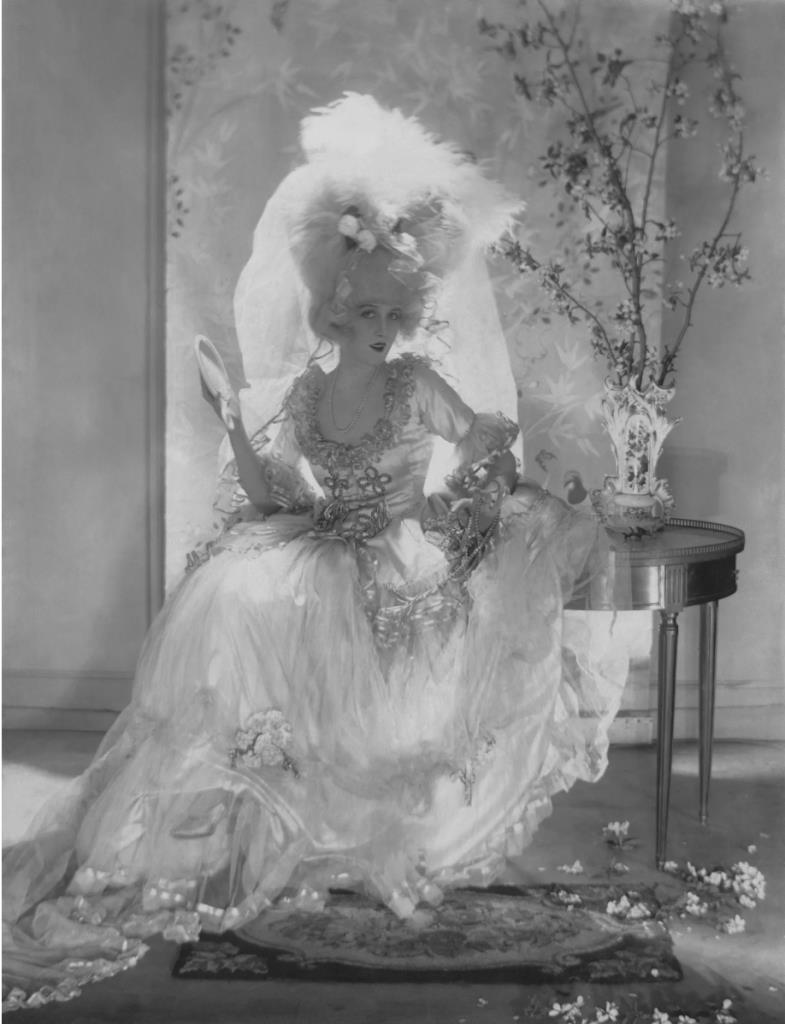
Baron Adolph de Meyer for American Vogue 1920 (Image credit: Vogue.com)
Baron Adolf De Meyer (1868-1946): The first official fashion photographer for American Vogue in 1913 Known for his dreamy, beautifully lit photography, he was called “the Debussy of photography”.
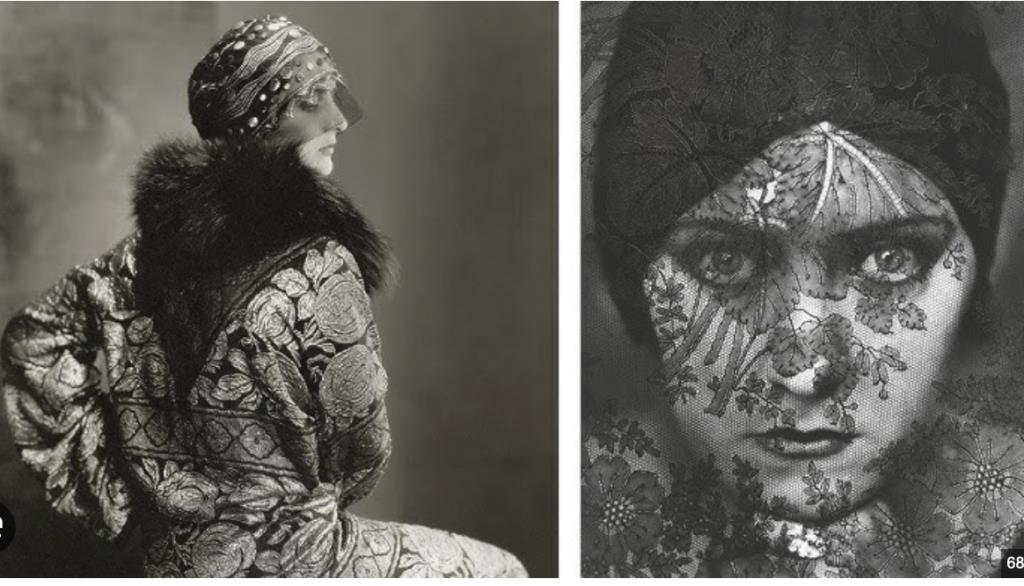
Edward Steichen – a model wearing a headdress and brocade coat (1925) & Gloria Swanson Behind Lace (1928) (Image credit: © 1930 Condé Nast Publications Nelson-atkins.org)
Edward Steichen (1879-1973): Renowned for his innovative use of lighting and composition, Steichen’s Vogue covers from the 1920s and 30s elevated fashion photography to an art form.
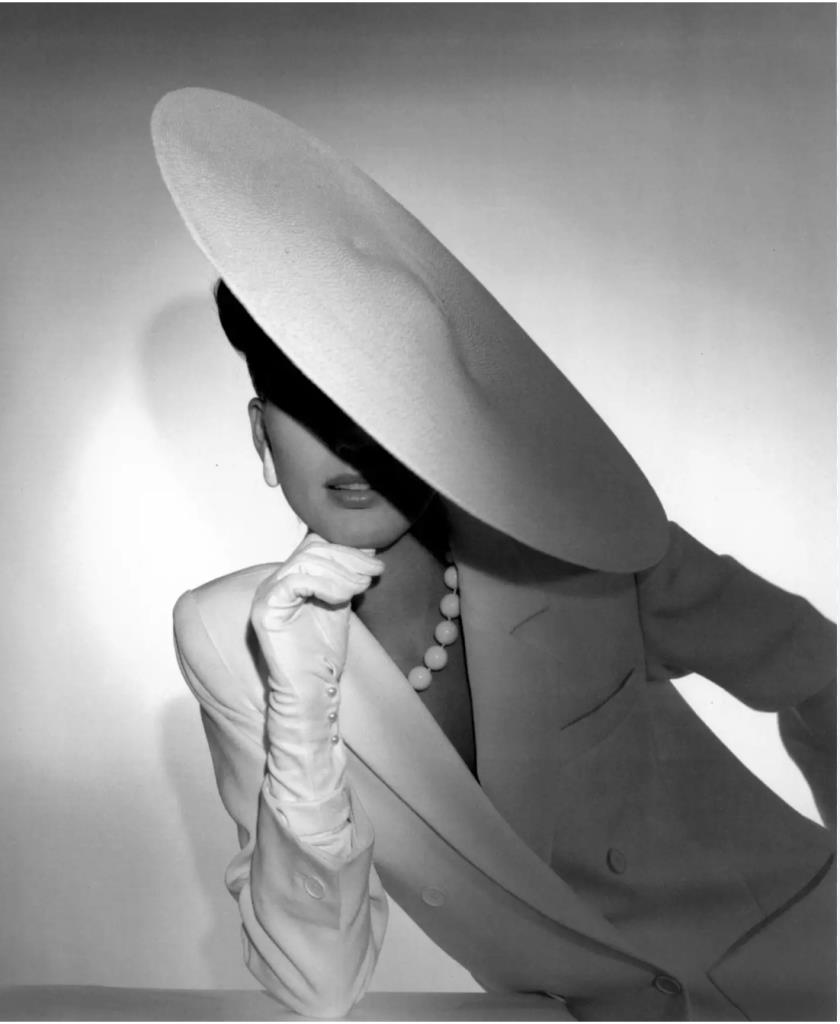
Horst P. Horst Study in Ivory 1982 (Image credit: JacksonFineArt.com)
Horst P. Horst (1906-1999): Horst’s surrealist compositions, often featuring mannequins and exotic objects, redefined the boundaries of fashion photography.
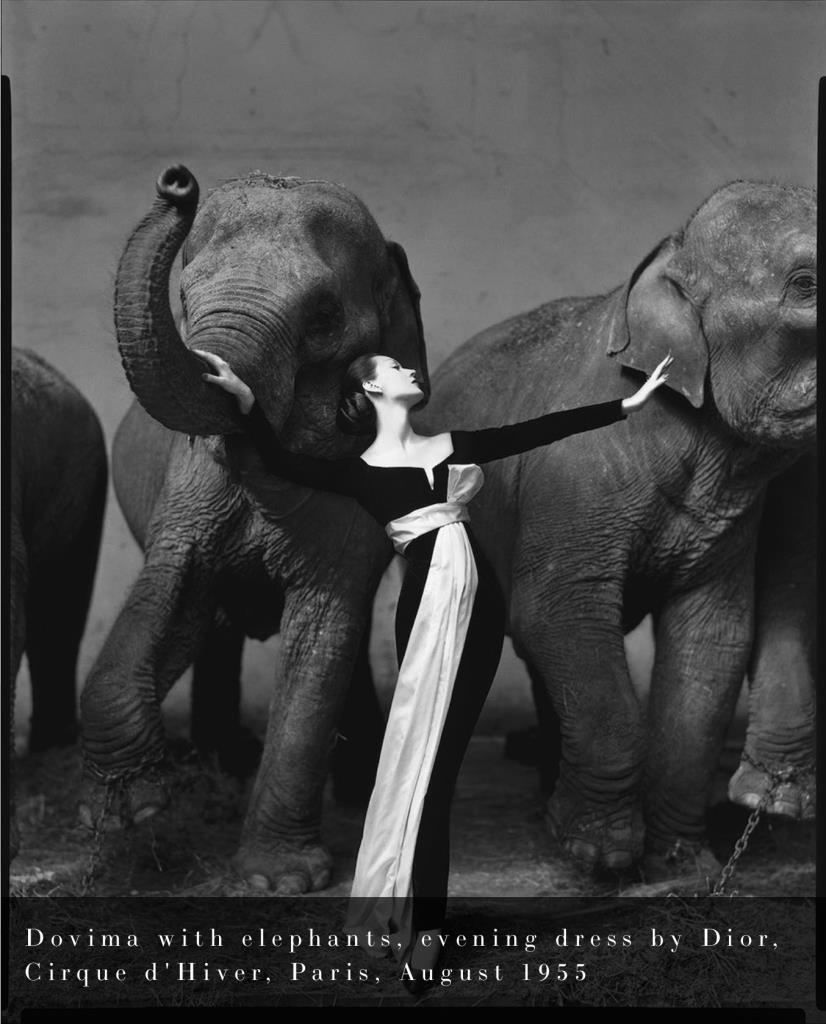
Richard Avedon (1923-2004): Avedon’s iconic portraits captured the essence of high fashion with a raw, emotional intensity. (Image credit: avedonfoundation.org)
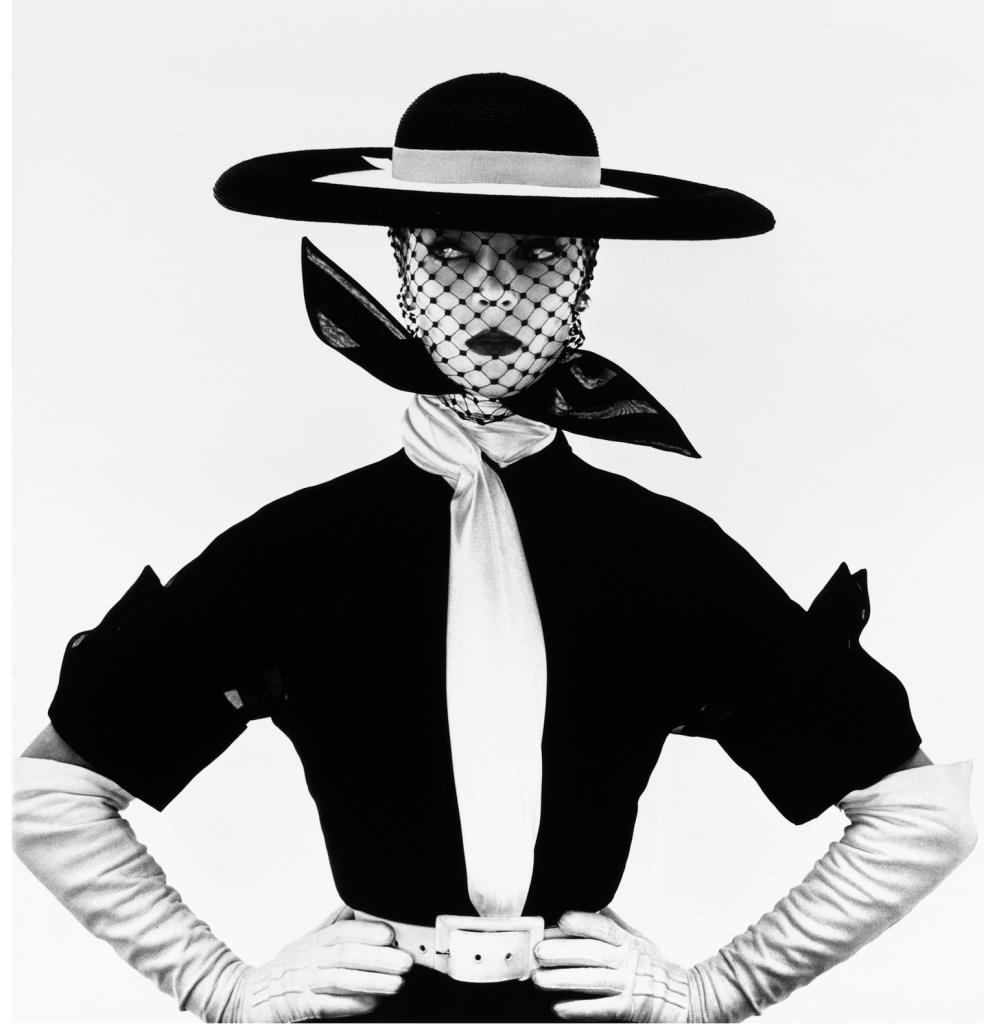
Irving Penn – Black and White Vogue cover (Ann Patchett) New York 1950 @Conde Nast (Image credit irvingpenn.org)
Irving Penn (1917-2009): Penn’s meticulous attention to detail and his ability to elevate everyday objects to works of art made him one of the most influential photographers of the 20th century.
The Swinging Sixties and Seventies
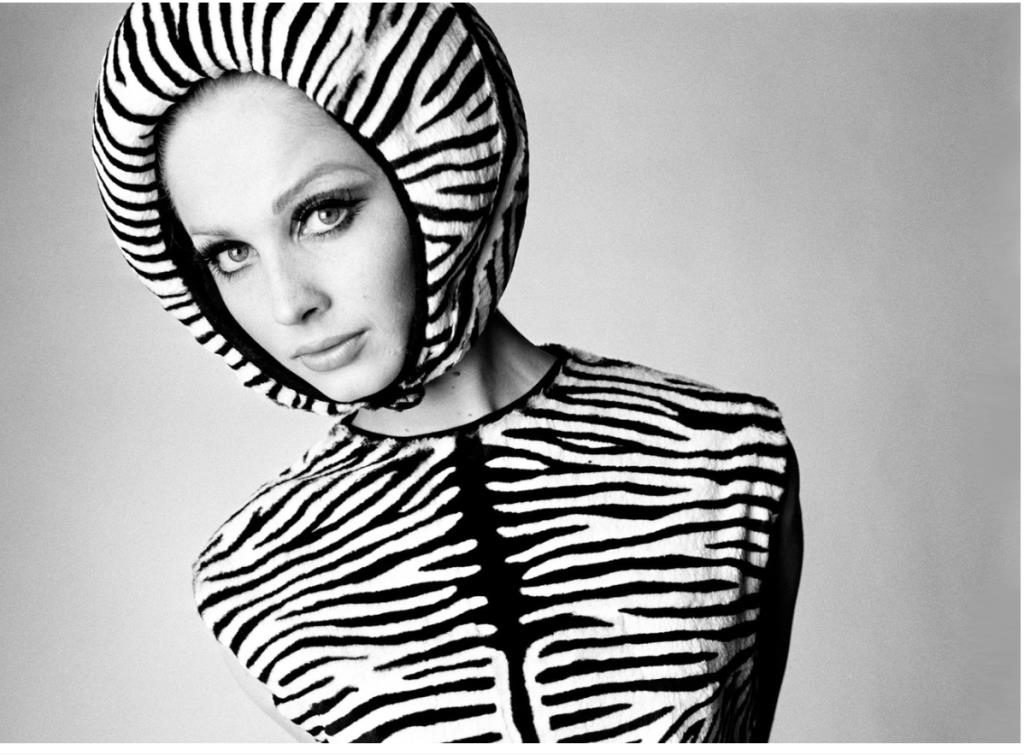
David Bailey Jean Shrimpton model 1960 (Image credit: BigDog.Media)
David Bailey (1938): Bailey’s Swinging London portraits of iconic figures like The Beatles, Jean Shrimpton and Twiggy captured the rebellious spirit of the 1960s.
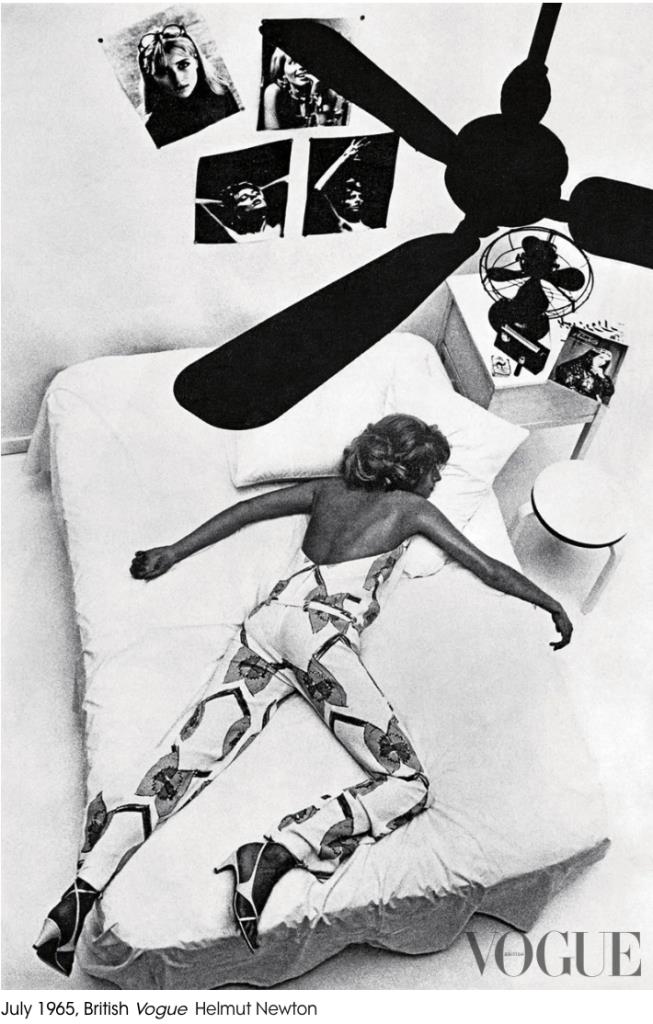
Helmut Newton (1920-2004): Newton’s provocative and often controversial photographs challenged societal norms and pushed the boundaries of fashion photography. (Image credit: vogue.com.uk)
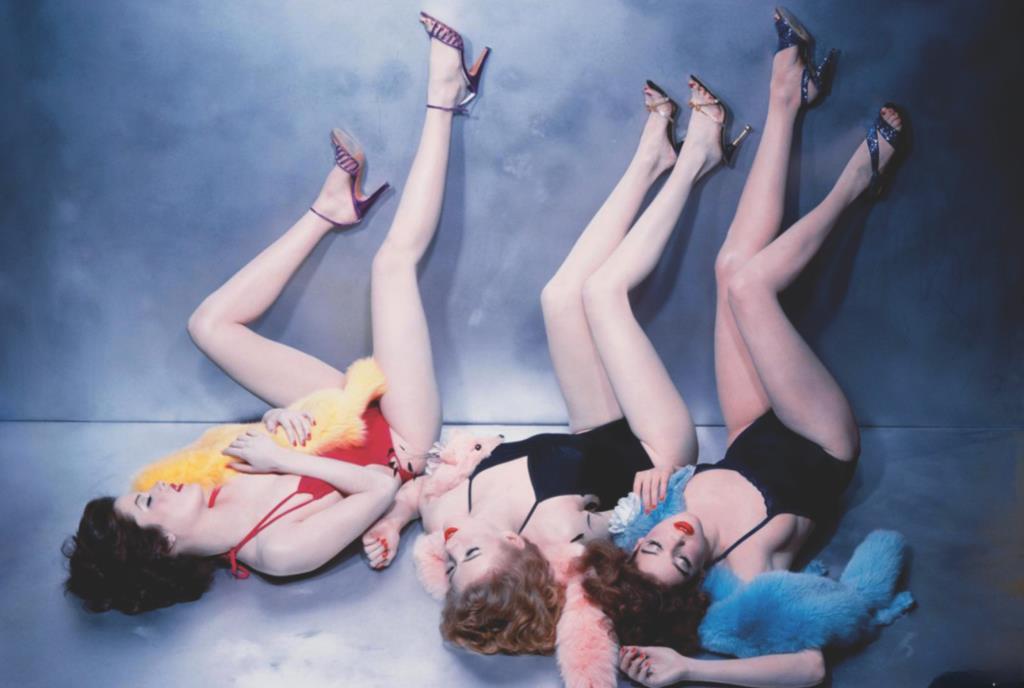
Guy Bourdain (1928-1991): Bourdin’s surreal and often disturbing images blurred the lines between fantasy and reality, creating a unique visual language. (Image credit: Plastik magazine)
The Eighties and Nineties: Supermodels and Excess
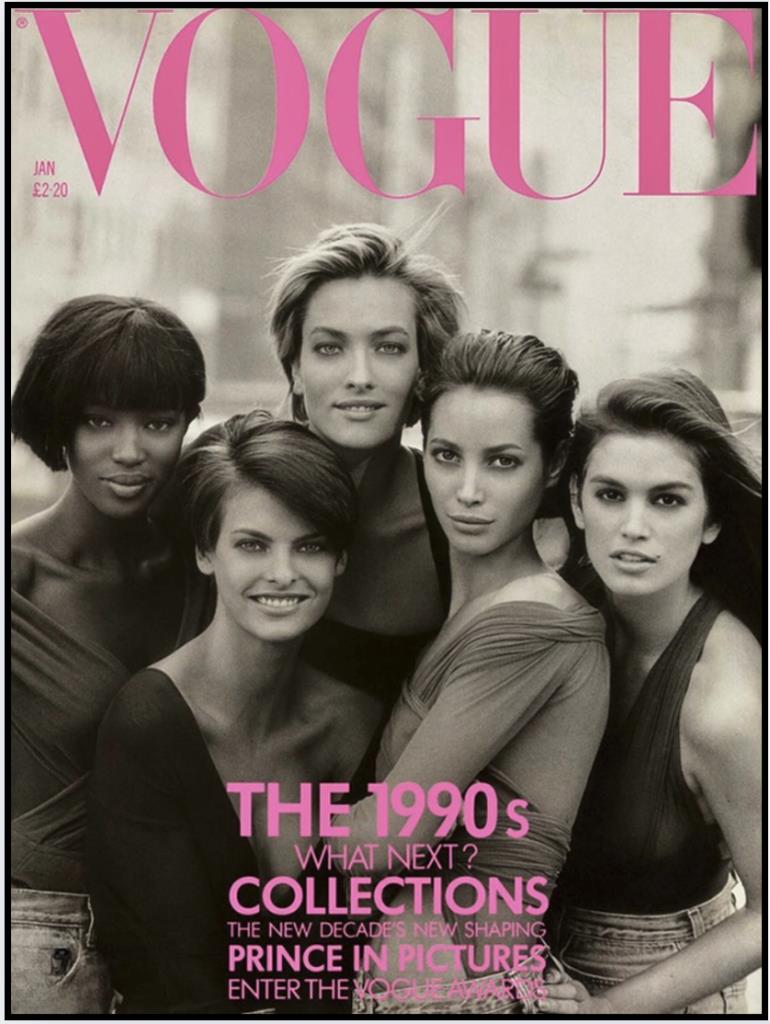
Peter Lindbergh (1944-2019): Lindbergh’s iconic black-and-white portraits of supermodels like Cindy Crawford and Naomi Campbell celebrated natural beauty and individuality. (Image credit: Vogue.com)
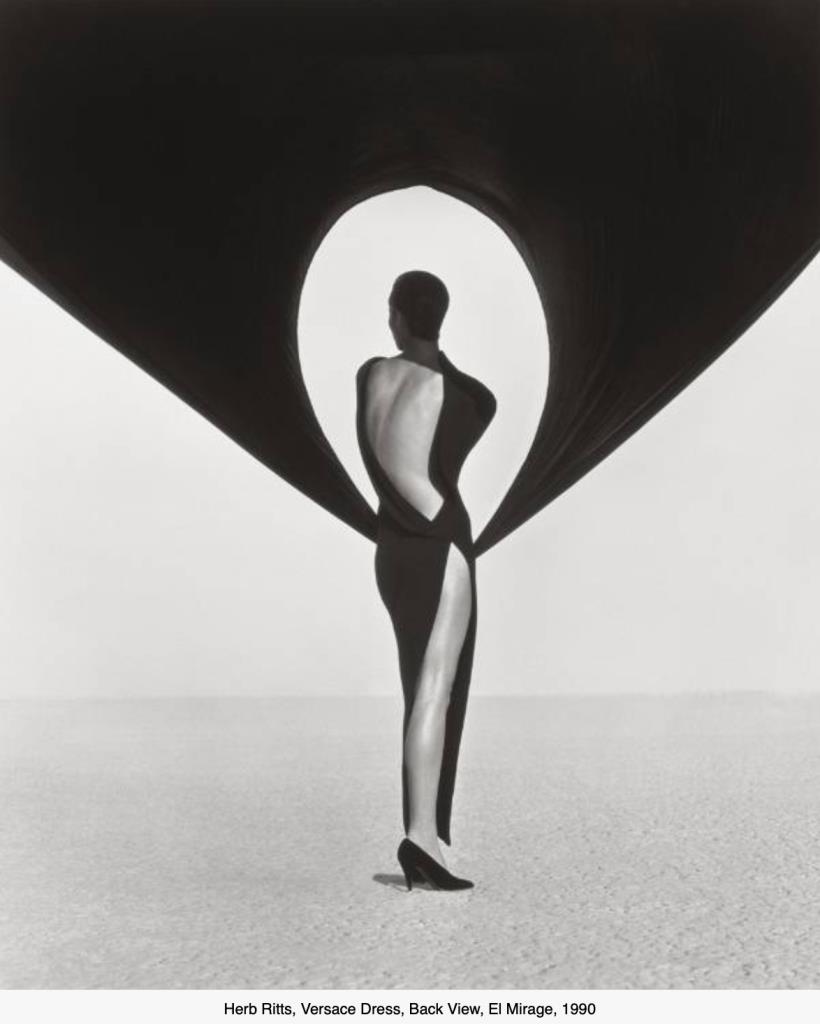
Herb Ritts (1952-2002): Ritts’ glamorous and often sensual photographs of celebrities and supermodels captured the excess and opulence of the 1980s and 90s. (Image credit: artandantiquesmag.com)
The 21st Century: Digital Age and Diversity
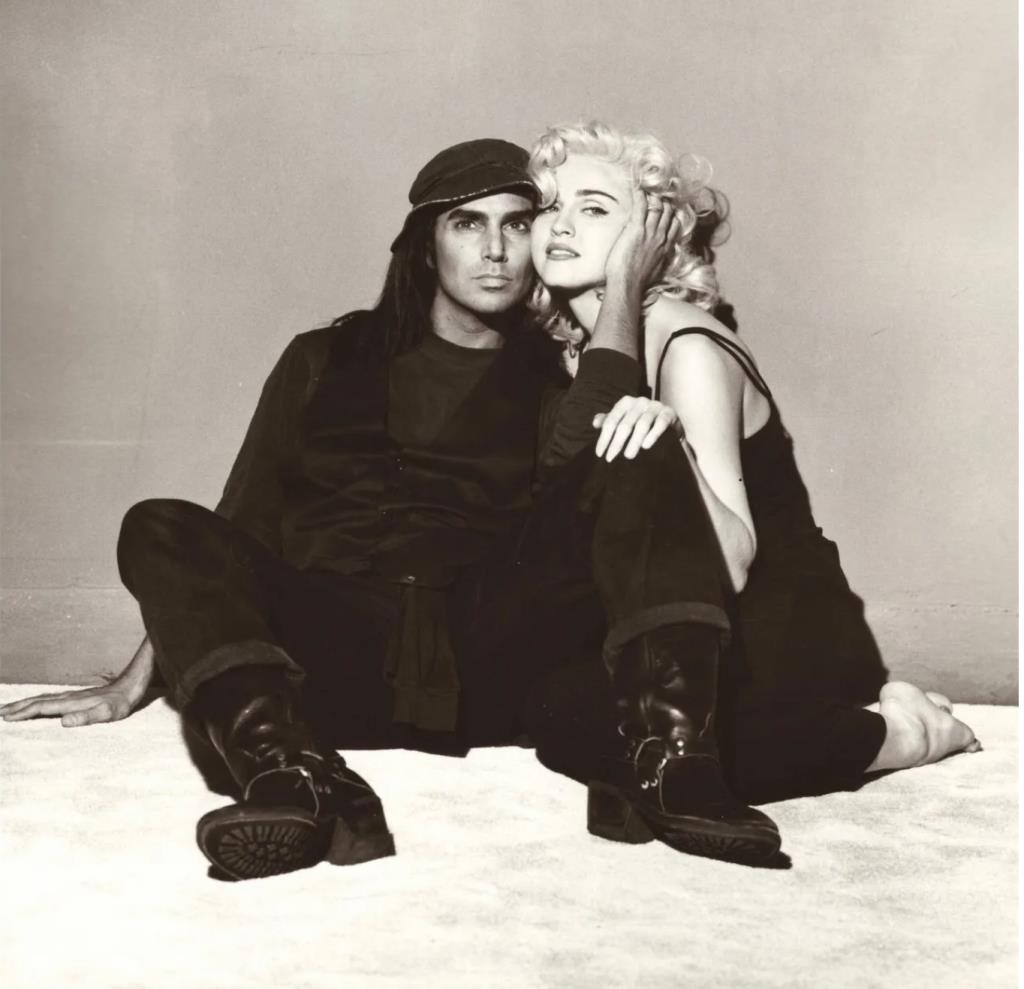
Steven Meisel (1954): Meisel’s elaborate and often theatrical photographs, especially of Madonna (2009), have defined the look of high fashion for decades. (Image credit: Medium.com)
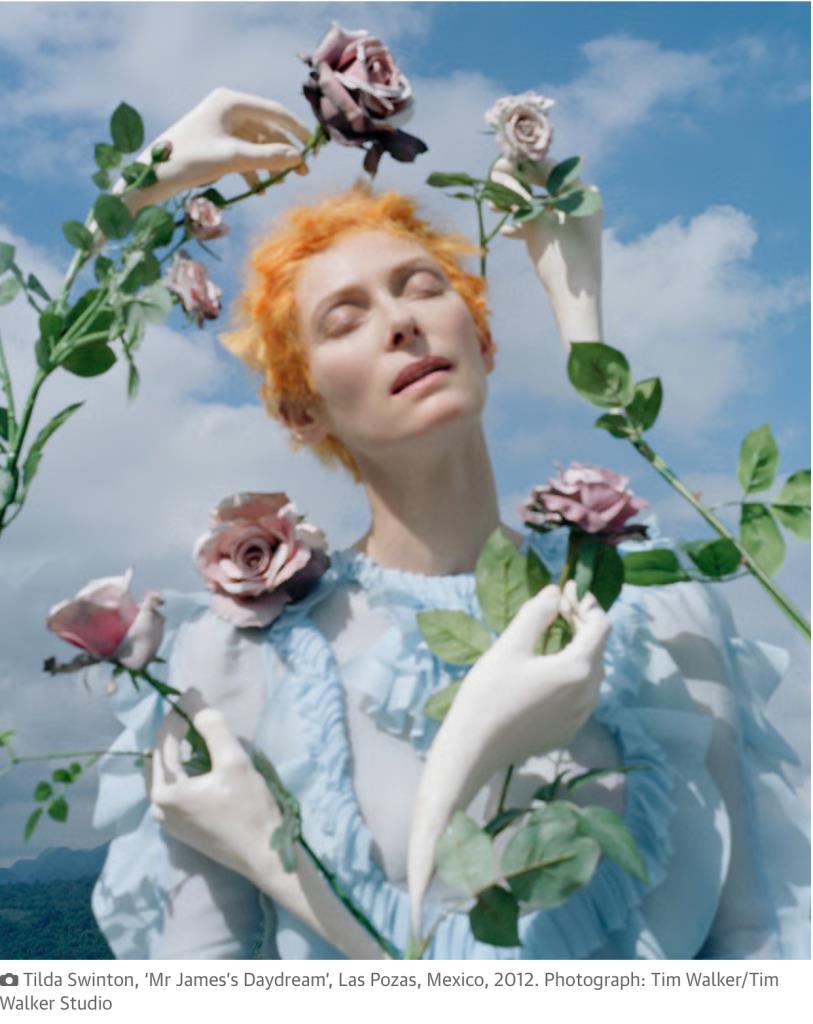
Tim Walker (1970): Walker shot his first Vogue fashion story at the age of 25 and is known for his imaginative and often surreal photographs that transport viewers to fantastical realms. (Image credit: theguardian.com)
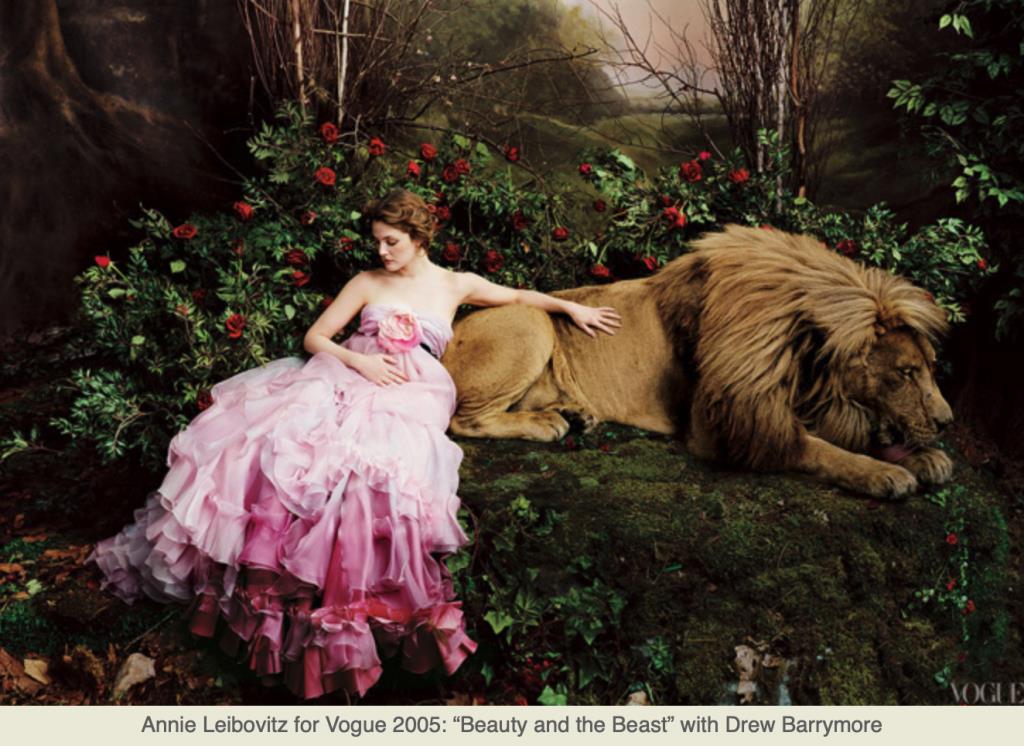
Annie Leibovitz (1949): Leibovitz’s iconic portraits of celebrities and cultural figures capture their essence with a unique blend of intimacy and grandeur. (Image credit: vogue.com)
Note: This is just a small selection of the many iconic fashion photographers and images that have shaped the industry. To truly appreciate the breadth and depth of fashion photography, it’s recommended to explore the work of other influential photographers such as Cecil Beaton, Man Ray, Terry Richardson, Lee Miller, Ellen von Unwerth, Roxanne Lowit, Mario Testino, Patrick Demarchelier, Bruce Weber, Giampolo Segura, Lara Jade, Julia Hetta, Mert and Marcus, Lina Tesch, Nick Knight, Inez van Lamsweerde & Vinoodh Matadin, Paul Bellaart, Tommy Ton, Sebastian Faena, A. Rrajani, Cass Bird, Mario Sorrenti, Emily Soto and Zhang Jingna.
Although he wasn’t known for creative photography, I would be remiss if I didn’t include Bill Cunningham. Bill shot my work for Women’s Wear Daily and was later known for his street photography at The New York Times.
AI’s Impact on Fashion Photography: A New Era of Creativity?
Artificial Intelligence (AI) is revolutionizing the fashion industry, and fashion photography is no exception. From enhancing creative processes to streamlining production, AI is reshaping the way we capture and perceive fashion.
Here are some key ways AI is being used in fashion photography:
1. Image Generation and Editing:
- AI-Powered Editing Tools: Advanced software like Adobe Photoshop, powered by AI, automates tasks like color correction, noise reduction, and object removal, saving photographers time and effort.
- Generative AI: AI algorithms can create entirely new images based on specific prompts, allowing for the generation of unique and imaginative fashion visuals.
2. Virtual and Augmented Reality:
- Virtual Fashion Shows: AI enables the creation of immersive virtual fashion shows, where models can showcase designs in virtual environments.
DO YOU HAVE A FAV PHOTOGRAPHER YOU’D LIKE TO ADD?
Reminder: Our once yearly UoF Holiday sale is here but expires on 1/2/2025. Get $63 off a yearly subscription (was $220/now $157). Use promo code LEARN at checkout
Get $10 off the first month of a recurring monthly subscription (was $22.95 /now $10). Use promo code STUDY at checkout
Makes a great Holiday Gift!
Scan this QR code to sign-up

-------------------------------------
By: Francesca Sterlacci
Title: Is Fashion Photography Doomed?
Sourced From: www.universityoffashion.com/blog/is-fashion-photography-doomed/
Published Date: Sat, 07 Dec 2024 19:27:34 +0000
Read More
Did you miss our previous article...
https://edmmusic.news/fashion-clothing/sleeve-mania-history-of-the-leg-omutton-sleeve
 FestivalsMusicNew ReleasesArtistsFashion & ClothingVideosPrivacy PolicyTerms And Conditions
FestivalsMusicNew ReleasesArtistsFashion & ClothingVideosPrivacy PolicyTerms And Conditions
